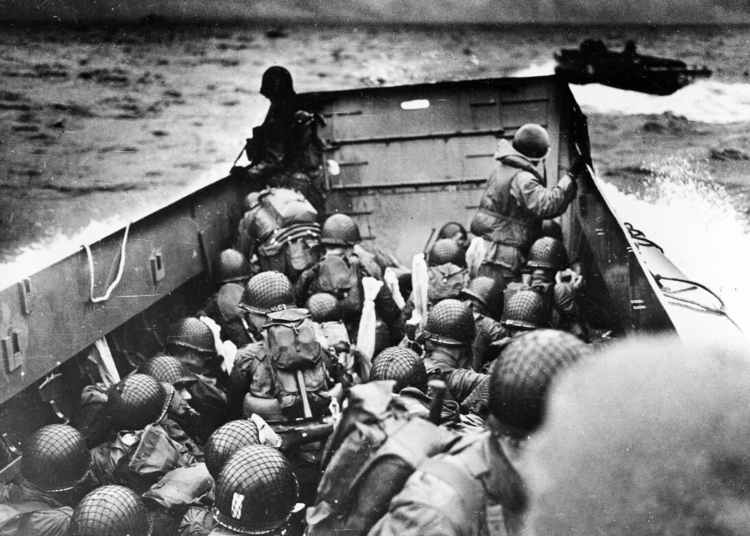The article discusses the significance of the D-Day invasion, which took place on June 6, 1944, during World War II. Led by the Allied forces, this invasion saw the largest amphibious assault in history as they stormed the beaches of Normandy in France. The careful planning and preparation, including an elaborate deception campaign, played a crucial role in the success of the invasion. Despite fierce resistance from German forces, the Allied troops managed to secure a foothold and begin their campaign to liberate France. The impact of D-Day was immense, leading to the defeat of Nazi Germany and showcasing the power of determination and international cooperation. The sacrifices made on D-Day should never be forgotten, and the legacy serves as a reminder of the importance of fighting for freedom.
D-Day: The Invasion That Changed the Course of the War
Introduction
On June 6, 1944, known as D-Day, a momentous event took place that would alter the outcome of World War II. This invasion, led by the Allied forces, saw the largest amphibious assault in history as they stormed the beaches of Normandy in France. The success of the D-Day invasion marked a turning point in the war, ultimately leading to the defeat of Nazi Germany. This article delves into the significance of D-Day and the dramatic impact it had on the course of the war.
Planning and Preparation
The planning and preparation for D-Day were extensive and meticulous. Months of intelligence gathering, strategic discussions, and logistical planning were undertaken to ensure the success of the invasion. Under the leadership of General Dwight D. Eisenhower, every detail was considered, including the tides, weather conditions, and defensive fortifications.
The Allies had to overcome several challenges, most notably the deception campaign known as Operation Fortitude. This extensive ruse aimed to mislead the Germans about the precise location and timing of the invasion, diverting their attention to Calais rather than Normandy. The success of this deception played a crucial role in facilitating the surprise element of the invasion.
The Landings and the Battle
At dawn on June 6, 1944, a massive amphibious assault began as over 156,000 troops from the United States, Britain, and Canada made their way across the English Channel towards the Normandy coast. The five designated landing beaches, codenamed Utah, Omaha, Gold, Juno, and Sword, witnessed fierce resistance from German forces stationed there, but the Allied troops were determined and prepared.
Omaha Beach proved to be the most challenging landing point, with heavily fortified German defenses making it a deadly battleground. Despite the difficult terrain and heavy casualties, the American forces eventually managed to gain a foothold and push inland. The bravery and tenacity displayed by the Allied soldiers on D-Day were unparalleled, as they fought through gunfire, obstacles, and uncertainty.
Breakthrough and Advance
D-Day was not only about the successful landings but also marked the beginning of a relentless campaign to liberate France from German occupation. Once the initial beachheads were secured, the Allied forces began their push inland. The battle for Normandy was grueling and fierce, but the determination of the Allied troops was unwavering.
Over the following weeks and months, the Allies were able to break through the German defenses, gradually gaining momentum and expanding their foothold in France. The successful landings on D-Day allowed for the establishment of a vital supply line, enabling the Allies to bring in reinforcements and equipment necessary for the ongoing battle.
Impact and Legacy
The impact of D-Day was immense and far-reaching. The invasion not only marked a significant tactical victory for the Allies but also dealt a severe blow to German morale and military capabilities. The successful landings shattered the idea of Hitler’s invincibility and set in motion the ultimate downfall of Nazi Germany.
The liberation of France had a profound effect on the course of the war. It provided a crucial base for future Allied operations, allowing them to launch offensives that would eventually lead to the defeat of the Axis powers. Moreover, the success of D-Day demonstrated the power of international cooperation and showcased the bravery and determination of the Allied troops.
The sacrifices made on D-Day should never be forgotten. Thousands of Allied soldiers lost their lives, and many more suffered injuries, but their unwavering determination and valor ensured the ultimate triumph of good over evil.
Conclusion
D-Day was a turning point in World War II, changing the tide of the conflict and ultimately leading to the liberation of Europe. The meticulous planning, courageous landings, and subsequent advance by the Allied forces showcased the power of determination, bravery, and international cooperation. The legacy of D-Day serves as a reminder of the sacrifices made by those who fought for freedom, and it continues to inspire generations to strive for a more peaceful world.













